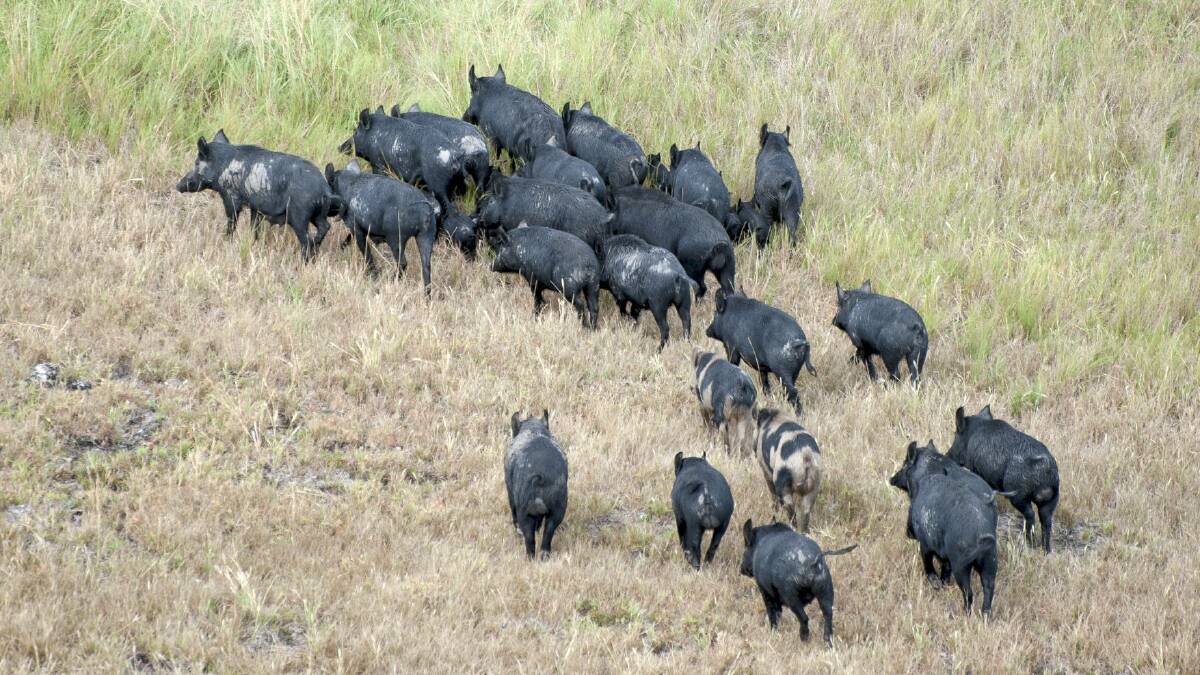
If 2020 taught us anything it would be the threat that any chink in Australia's biosecurity armour could have on our agricultural industry.
Subscribe now for unlimited access to all our agricultural news
across the nation
or signup to continue reading
Before the gravity of COVID-19 and the subsequent pandemic had arrived in Australia, the agricultural industry was already on high alert after the discovery of fall armyworm and the arrival of African Swine Fever in Papua New Guinea.
In January, Global Feed Survey researcher Alltech reported that livestock feed had dropped by more than 1 per cent because of the ASF epidemic - a stark warning to Australian producers.
Just a few weeks before the federal government established a national cabinet to tackle the pandemic in March, another biosecurity taskforce was founded to prevent ASF from landing on our shores.
The pork industry's fears intensified after ASF was discovered by Australia's closest neighbour Papua New Guinea in late March - killing hundreds of pigs.
Then came the pandemic, and if it wasn't possible to imagine the potential damage caused by a vulnerable biosecurity defence at the time, it surely is now.
Australia's response to the deadly outbreak of COVID-19 triggered fresh fears that we could be leaving ourselves vulnerable to a potential outbreak of ASF.
Australia's biosecurity inspector-general warned in April that our biosecurity resources had been stretched too thin as the country implemented border measures to stop COVID spreading.
The fear then was that too many biosecurity resources were being reallocated and that we had exposed our pork industry to the threat of ASF landing on our shores.
Those fears have still not eventuated and Australia's status as an island nation has proved to be the perfect defence against biosecurity threats such as COVID and ASF. However, CSIRO last month reported more needs to be done if we are to keep Australia free from future disease outbreaks.
The national science agency claimed that Australia's biosecurity system would struggle to meet future challenges, even if investments tripled in the next 10 years.
Their report flagged that despite our success, the arrival of fall armyworm, outbreaks of bird flu and more than 20 new weeds proved there was still more to be done.
Leading University of Queensland microbiologist and animal disease researcher, Associate Professor Patrick Blackall, said Australians should take confidence in our biosecurity defences.
"In general as a nation, from our farmers to our agriculture departments, there is a great awareness of what the biosecurity issues facing our country are," he said.
"COVID-19 has given the general public an insight into just what diseases can do and the impact they can have.
"There is now far more understanding about what movement to humans could mean to the travel of diseases."
Dr Blackall warned that despite our success there could be a risk of complacency.
"Human nature is always one where people are going to get tired of situations and get complacent," he said.
"I think the governments and our health departments are trying really hard to stop that from occurring."
Dr Blackall, who is a member of UQ's Queensland Alliance for Agriculture and Food Innovation, said even if there was an outbreak of ASF the country's pork industry was well prepared to handle the challenge.
"There's two fences, there's the biosecurity of preventing disease in Australia and then there is the biosecurity defence of our farmers.
"Our pig farmers have learnt for a long time how to handle acute diseases from wild pigs. There's a double fence to cross and at this stage the disease has not got across the first fence."

